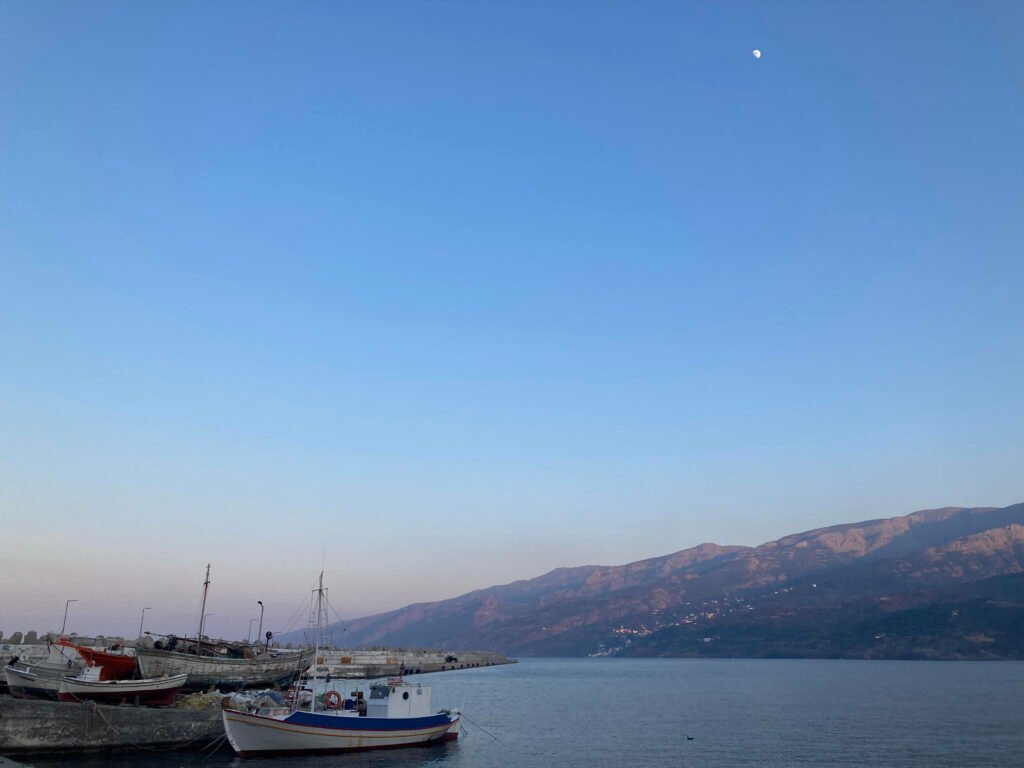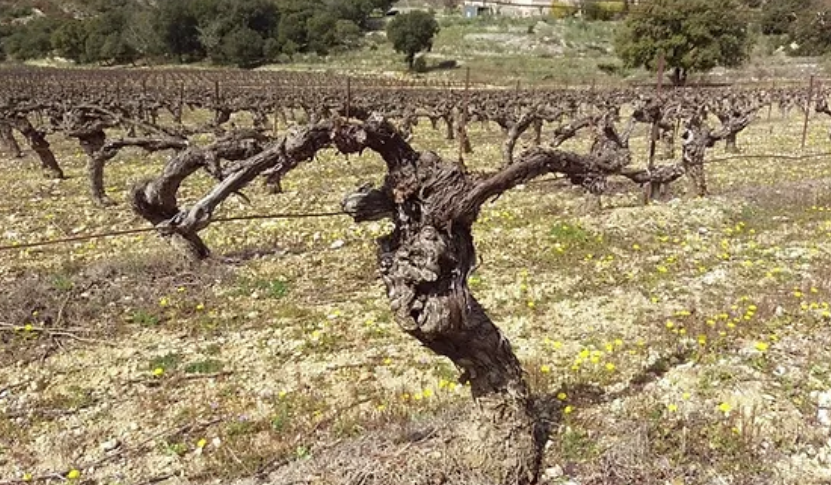Winter can be a long, dull, and lonely season, but it gives the soul space and time for wintering. In this difficult season, we look to nature and its quiet wisdom, the sole and steady mirror to our souls. The trees shed their leaves and endure the long, dark nights with a stolid equanimity; silence abounds in the air, pervasive as the breath of the gods, intimating within its wide belly vast distances and parallel worlds; the heavy dark coddles the bare land and wide sky, supporting the bloom of moon night after night in its blackness. Everything seems to retreat into itself, and yet in this stillness, there is a sense of something brewing–– of unborn and latent forms fermenting, old and new worlds adjoining, the preparation for springtime rejoicing.

The Myth of Demeter and Persephone
The ancient Greeks were deeply attuned to the rhythms of nature and cultivated myths to act as the living symbols and guideposts of the earthly experience. One of the most well-known myths is that of Demeter and Persephone. Hades, ruler of the Underworld, made an agreement with his brother, Zeus, that one day, he would provide Hades with one of his daughters to marry. Years later, Hades caught sight of the beautiful Persephone, Zeus’ daughter with Demeter, goddess of the harvest and agriculture, and gained Zeus’ permission to abduct her, as Demeter was a fiercely loving mother and would never allow Persephone to go with Hades. One day, Demeter left Persephone in the care of the nymphs as she wandered through the field picking flowers. Seeing his opportunity to steal her away, Hades burst from a cleft in the earth and dragged her to the Underworld. When Demeter returned, unable to find her daughter, her grief became so great that she abandoned her duty to the earth, causing all the harvest to shrivel up and die. This caused a widespread famine, and as the people of the earth starved, the offers to the gods greatly decreased.
Alarmed by the state of the earth and humanity, Zeus sent Hermes down into the Underworld to negotiate Persephone’s return. Hades allowed her to leave, but under the condition she eat six pomegranate seeds first, one for each month of every year she was to spend in the Underworld. When Persephone returned to her mother, Demeter rejoiced, and the earth became fecund and plentiful once again. But during Persephone’s annual obligation to Hades each year, Demeter went back into mourning, causing the harvest to go dormant and thus creating autumn and winter.

The Wisdom of Winter
The devastation Demeter felt at her separation from her daughter carries the same sorrow many of us feel in the depths of winter. A sense of alienation from the heart of life is experienced by many. We find ourselves musing over times passed, when we reveled in the pulse of life, pining for our youth or our past loves, of the sensation of being in love, of the years bygone and friends passed by. It is a time of coming to terms with what we have lost, and properly mourning all of it. We must shed the heavyweight of grief through our bodies as a snake uncoils from its skin. Only by facing our sorrows, conversing with them, learning from them, and, when the time is right, letting them go, can we ever make room for future delights or grow into the fullest iteration of our beings.
The redemption inscribed in the language of nature is that every iteration of life has its season, and seasons pass so that new ones can arise in full bloom. What was last year the carcass of a crow lives again in the climbing of the ivy, of the springtime petal drinking morning dew, as the energy of ants as they tend to the earth. Nature carries us forward, in the cradle of time, in the cycle of seasons, in the discovery of a new passion, in the meeting of a new friend. There is a resilience in the way Demeter reacts to this new eternal compromise with Hades. She rejoices when it’s time to rejoice and mourns when it is time to mourn. There is no resisting, no distraction, no self-talk guilting herself into being more productive or more social. There is wisdom in the cycle of life and death, grief and joy, blooming and decaying. Each of them are the opposite face of each other, the complimentary poles which perpetuates the movement and evolution of life.

The natural wisdom of the life cycles is beautifully and simply illustrated in Ecclesiastes of the Bible:
There is a time for everything,
and a season for every activity under the heavens:
a time to be born and a time to die
a time to plant and a time to uproot,
a time to kill and a time to heal,
a time to tear down and a time to build,
a time to weep and a time to laugh,
a time to mourn and a time to dance,
a time to scatter stones and a time to gather them,
a time to embrace and a time to refrain from embracing,
a time to search and a time to give up,
a time to keep and a time to throw away,
a time to tear and a time to mend,
a time to be silent and a time to speak,
a time to love and a time to hate,
a time for war and a time for peace.
Winter in the Vines
Just as one cannot always be in a state of celebration, nor can one survive a perpetual state of grief, the vines wave and weave through the seasons in accordance to what their nature needs. Grapes are harvested in the fall months, and once the harvest is done, the vines prepare for the colder months. They do this through a process called supercooling, a series of complex mechanisms which allow their water to remain liquid even at zero degrees Celsius. As the autumn turns to winter and the temperatures continue to drop, the vines stay ahead of the curve, lowering their chances of freezing by continually lowering their threshold temperature. The vines increase their cold hardiness in order to give themselves the best chance of survival.

This adaptability and resilience is remarkable. It is a beautiful example of how when one leans into the demands of each season–when one learns how to dance with each season of life–we increase our strength and longevity. We adapt to and adopt the features of every cycle because we recognize that we are an extension of our environment, that the wisdom without us is the wisdom within us. We are supposed to be made malleable by our environment, as all creatures of nature are perpetually opening and closing in a symphony of information exchange and internal adaptations.
We are made to be broken, opened, rattled, awed, and interwoven. The vines adopt the cold and internalize it, so that they may burst to life again come bud break. The dormancy of the vines is broken come the spring, when new shoots begin to sprout, little wondrous fists of green made wise by the long months of winter and ready to share this new brilliance with the earth. Even the Blue Zones must winter white to return to full blossom. Even the vines of the wines of Ikaria must retreat deep into the Underworld to emerge once again, ready to make the people of the earth drunk with new joys.


